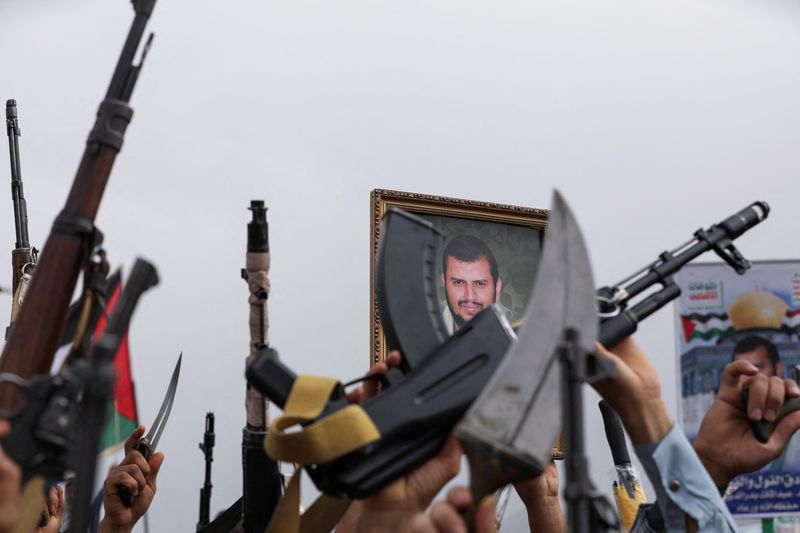
CAIRO (Reuters) – The leader of Yemen’s Iran-aligned Houthis, Abdul Malik al-Houthi, said on Thursday his group will monitor the implementation of a ceasefire deal between Israel and Hamas aimed at ending the 15-month war in Gaza and continue its attacks if it is breached.
The Houthis, who had on an almost weekly basis targeted ships using ballistic missiles and drones in waters near Yemen’s shores to show their solidarity with the Palestinians, had long said they would cease these operations if the conflict ended.
The attacks, which started in Nov. 2023, have disrupted international commerce, forcing some ships to take the long route around southern Africa rather than the Suez Canal, leading to an increase in insurance rates, delivery costs and time that stoked fears of a new bout of global inflation.
The Houthis, who control most parts of Yemen including the capital Sanaa since seizing power in late 2014, have sunk two vessels, seized another and killed at least four seafarers.
The armed group has also launched missiles and drones towards Israel, hundreds of kilometres to the north. Israel responded by striking Houthi areas on several occasions, including last week when Israeli warplanes bombed two ports and a power station.
Israeli Prime Minister Benjamin Netanyahu said last month Israel was only at the beginning of its campaign against the Houthis.
The United States alongside Britain launched in Dec. 2023 a multinational operation to safeguard commerce in the Red Sea and have repeatedly conducted air strikes on Houthi strongholds targeting weapons storage facilities.
The EU later in February launched its own Red Sea mission, known as Aspides, to help deter intensified Houthi attacks and help protect the key maritime trade route.

The Houthis appear to be the latest standing component of Iran’s anti-Israel and anti-Western alliance of regional militias, known as the Axis of Resistance, which also includes Hamas, Lebanon’s Hezbollah and Shi’ite armed groups in Iraq.
Israel has dealt serious blows to Hamas and Lebanon’s Hezbollah, killing their top leaders and reducing their arsenals. In the aftermath, the decades-long regime of Bashar al-Assad in Syria was also toppled.
This post is originally published on INVESTING.




